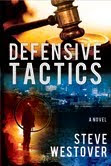
I suspect many people will disagree with the concept of this post. I welcome the disagreement, or I should say, I welcome the dialogue. Sometimes all it takes is a question or a challenge to get our juices flowing and we find that we are more passionate about a subject than we even realize. I hope that is the case with the questions I pose today.
Lately I’ve been pondering the rules and qualities that define good writing. Or more to the point, what makes one book better than another. I am reading a LOT right now, much more than usual, as I prepare to cast a somewhat informed vote for the Whitney Awards. I have heard some wonder if there are certain criteria we should all consider in judging. I’ve heard responses both for and against the use of a uniform evaluation form. Unfortunately, as yet I have come up with few conclusions but many questions.
I would like to ask a series of questions and get responses from the readers.
1- Are there certain norms and rules that fiction writing should follow to be considered worthy of accolades and general acceptance? Are these norms and rules the same today as they were twenty or fifty, one hundred or two hundred years ago? Why or why not?
2- Why do we accept certain rules and norms? Do we do it because a teacher or mentor told us we should and we want to sound smart or are there hard and fast rules about what defines quality in writing?
3- Are there generally accepted rules we question but follow in an attempt to go with the flow in appeasing the gatekeepers?
4- Does the average reader care about following the rules of grammar, punctuation and point of view or are they in it for the story and characters?
5- What is most important to assessing the quality of a book: Story, technical skill or conveyance of emotion?
6- How do we obtain the best writing education? Continual reading to discover what we like and how we can emulate it? Classes that teach classic technique or writing conferences where experts and peers share their wisdom? Practice?
7- Is writing merely popular art that changes to meet the expectations of the audience? Or does the audience change as it becomes accustomed to the changes in art?
8- Which artist produced higher quality work—Picasso or Monet? Faulkner or King?
9- Are the differences between these authors and artists only stylistic or do they adhere to some different rules?
10- Are there some rules that should NEVER be broken if a writer wants to be taken seriously?
Am I a writing anarchist for questioning the value and method of how we arrive at our writing rules and norms, or am I merely an ill informed schmutz? Be honest. I can take it.
Like many readers I know what I like when I read it. I also know what I don’t like. I recently started reading a book and WOW…it is really bad. But I wonder how much of my taste is based on the rules I’ve been taught and the norms of the culture in which I live, instead of an acceptance or disapproval based on pure truth, innate quality and superior writing? Do I value what I’ve been trained to value?
In considering Whitney finalists I will suggest only one conclusion. I will vote for the books I enjoy. I will vote for the stories and characters I love and the themes and style that make me feel something. I’m not smart enough to evaluate in any other way. Am I wrong?
Please choose a question to answer. Don’t worry about being right or wrong or looking foolish. I think I’ve already established I’m the biggest fool here so just tell me what you think. Hopefully we can learn together.
FYI- I have developed a simple worksheet I use when evaluating my Enjoyment Factor of a book I am judging. Check out my Enjoyment Factor Worksheet.























I need to preface what I say by laying my biases out. Bias 1:I don't read a lot of fiction. I find that fact is always stranger than fiction and in that light, non-fiction suits me. I also like to learn something while I read, so I don't do a lot of reading strictly for pleasure. However, that being said, some of the best books I've read have been fiction. Go figure. :) Bias 2: LDS authors seem to put out some of the worst junk ever written. The stories are sometimes excellent, but the writing is crap. And, most often, I have found that the stories are just a bit too trite or sweet---like I'm reading a YW manual. In fact, I haven't ever really sat down to examine why I don't like many LDS authors that I have read. All I know is that I avoid them like the plague. So, now that some of my bias is all out there for you to see, I am going to choose the question of grammar and punctuation. I think that subconsciously, a lot of people are aware of grammar and punctuation. They may not follow the rules themselves or even know what they are, but they use them everyday to get around in life (assuming they all know how to read). I find it is a bit distracting to sit down with a book that doesn't adhere to the rules, either for the sake of art or for the sake of being different. One example is reading a book that doesn't include quotation marks around conversations characters are having. I can figure it out and grow accustomed to it, but I find that while I am reading the story I am also thinking about the lack of quotation marks simultaneously and I really don't think that was the intention of the author. It seems that the author, in that case, is trying to melt together the conscious and subconscious to mimic the feeling of what our brains do all the time, everyday. When we go back through our minds to conversations we have had in the past, there are no quotation marks to be found. But it backfires because I cannot stop thinking about the poor punctuation and how it is making it hard to read the story. I think the rules that underlie writing are not there to stifle, but to help people get an idea out to others in a way that can be understood universally. It's like knowing how to read a map. I really loved the book, The Book Thief. In fact, I would say it is one of the best books I have ever read in my life. It used a unique perspective. It sometimes bolded certain words or set them apart in the text. It included notes right in the middle of the paragraph or between paragraphs. There were diagrams and pictures included on some of the pages. However, the rules of punctuation and grammar were always followed, as far as I could discern. Those small little bits of interest were unusual, but they still followed the basic rules and so it was easy to "read the map". And while I think my experience was greatly heightened by the unique manner in which the book was laid out, the adherence to the basic rules of grammar and punctuation made it a sure thing. I will only ramble on a tiny bit more here in saying that when someone reviews a book in book club and says something about how they liked the book once they grew accustomed to the missing quotation marks or the sentences with no periods or commas, I never, ever read it. It goes in my mental garbage can immediately. I do believe I could talk about a lot of these questions all day long, but I will spare you. :)
ReplyDeleteThanks for your comments Banjo Queen. I agree with a lot of what you said. Once poor writing pulls you out of the story, it is difficult to concentrate on anything else.
ReplyDeleteIf you had never read a book with quotation marks or been taught when you should or should not use them, would it bother you to read a book without proper quotations?
Steve,
ReplyDeleteI read primarily scifi/fantasy fiction, and a bunch of non-fiction, mostly real history/biography. Though occasionally I branch out. I'm reading alot of Young Adult fiction as well. Trying to pre-screen as much as I can for my girls - oldest is 10. I am interested in Character. Make me identify with one in some way, and I'm hooked.
I also believe that a good book allows me to virtually live through experiences that I may never have to deal with, but could potentially help me deal with in the future. I believe this is a powerful part of writing/reading in humanity's experience.
I follow what OSCard has been beating the drum about for years. I read a story that I enjoy there is a reason that books are popular, and regardless of form, people enjoy them... Dan Brown, Clive Cussler, Stephanie Meyer, J.K. Rowling.
I could care less about what what constitutes correct writing, or proper form, though I imagine as an un-initiated, untrained, academic want-to-be I wouldn't recognize proper form if I tried. I also believe that books that follow some type of correct form become better books by their nature.
As to LDS books, I try and stay away from the popularized fiction, and go with the unknowns, like Cedar Fort, etc... For example, I despise the YW manualishness of the Lund writing (to pick him out of the large crowd). Last year I read the Lund, Fire and the Covenant, because I was reading everything about the willie/martin handcart companies I could find. Compared to Dave Wolverton's In the Company of Angels. Both books were the same basic story ITCOA was truer to life than the Lund book. I'm not interested in a story about a pretend ideal-life like we see in many DeseretBook type fiction.
When I'm in DB, I pick up the fiction marked down to 3 and 4 dollars, I find little gems there.
That is an interesting question, Steve. I am trying to even imagine not knowing how to read and having limited success. I will say that maybe it wouldn't bother me at first, but I think it would eventually bother me in that I would still have difficulty in picking out the conversation from the rest of the writing. The quotation marks are there to alert you to a different speaker. But then again, I might think it was completely fine. I can imagine either situation being true.
ReplyDeleteI like what Shawz Family said about character and living through experiences vicariously that I may not ever face. I want to add to that and say that I really like a book where I can identify with the character's good and bad qualities. I love to find myself in characters and be able to see out of their eyes. I also love to see how the character reacts to similar situations I've faced in my own life. And I always enjoy finding an idea, neatly and succinctly written, that I have struggled putting into words myself. When someone can express what you cannot in such a precise way it is like finding gold or maybe something even better. We all love to find out that someone else is like ourselves, that we aren't a freak of science and nature. :) Boy, I sure love books.